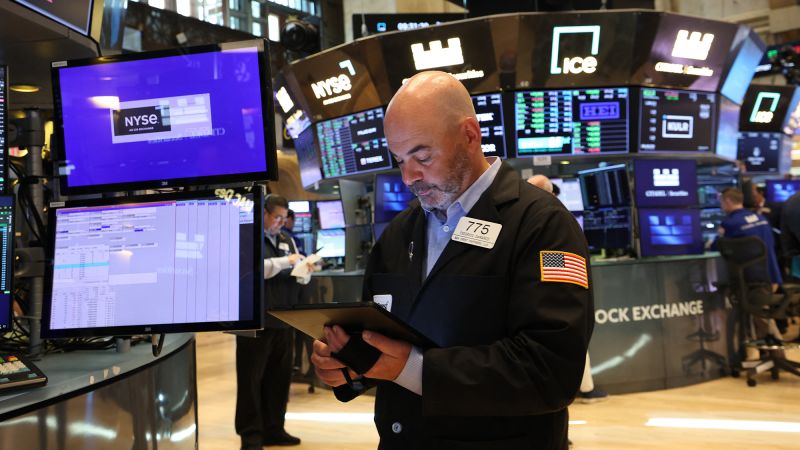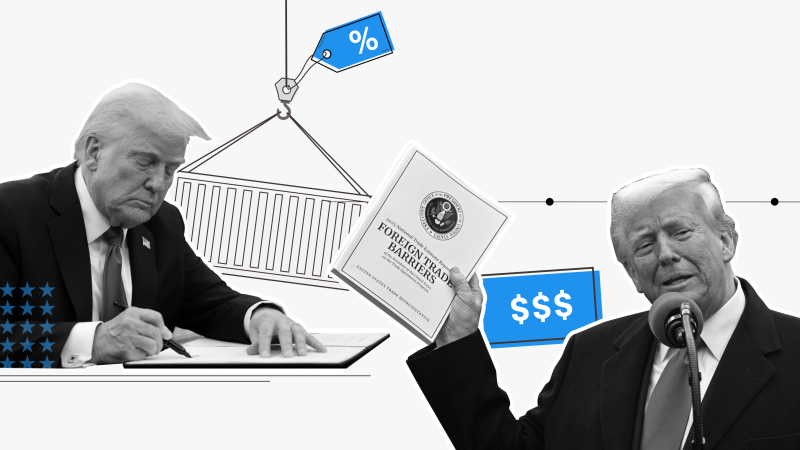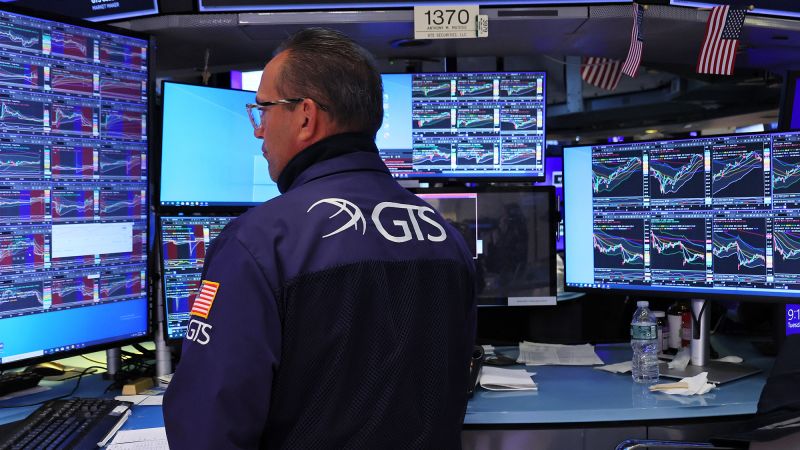US Court Halts Trump Tariffs, Impacting Markets

A U.S. federal court, specifically the Court of International Trade in New York, delivered a significant ruling on Wednesday, finding that President Donald Trump overstepped his authority in imposing sweeping tariffs. This decision has thrown the administration's core trade policy into chaos and prompted mixed reactions in financial markets. While the Dow Jones Industrial Average opened higher but hovered around the flatline, the S&P 500 rose, and the tech-heavy Nasdaq Composite saw notable gains, partly fueled by strong earnings from Nvidia. The ruling stated that the President had usurped powers normally vested in Congress and that federal law, including the International Emergency Economic Powers Act (IEEPA) which the administration cited, did not grant "unbounded authority" for such actions.
The court specifically addressed and halted the punitive tariffs President Trump announced on April 2 under the banner of “Liberation Day.” It rejected the administration's argument that the President used the carrot of trade to defuse the India-Pakistan conflict, ignoring this claim in its ruling. Senior Judge Jane Restani, during arguments, noted, “It may be a very dandy plan, but it has to meet the statute.” The court directed that the "challenged Tariff Orders will be vacated and their operation permanently enjoined," giving the Trump administration up to 10 days to end the tariff imposition. Plaintiffs in the case included 12 Democrat-run states and numerous businesses reliant on foreign suppliers, who argued the tariffs impacted them adversely.
The Trump administration immediately stated its intention to appeal the decision to the U.S. Court of Appeals. White House spokesman Kush Desai criticized the ruling, asserting that "it is not for unelected judges to decide how to properly address a national emergency" and that the tariffs were aimed at correcting unfair trade relationships. Despite the ruling, White House economic adviser Kevin Hassett mentioned that three trade deals were nearly finalized and he expected more. However, Wall Street analysts like Alec Phillips of Goldman Sachs suggested the White House might reclassify some tariffs under different, unchallenged laws. Gary Clyde Hufbauer of the Peterson Institute for International Economics warned that the uncertainty weighing on the economy would persist unless President Trump accepted the decision, an outcome he considered unlikely. Critics of the President also reportedly mocked him with the nickname "TACO" – Trump Always Chickens Out.
The stock market's initial reaction was somewhat muted due to the ongoing uncertainty surrounding the tariffs' fate. Keith Lerner, co-chief investment officer at Truist Advisory Services, commented that while positive, the news didn't have the "same oomph as it may have in early April when the market was down," as investors had already been pricing in less concern. Nevertheless, the Nasdaq surged 1% by Thursday, May 29, 2025. AI bellwether Nvidia significantly contributed, jumping 5% after reporting a 69% surge in quarterly sales driven by customers stockpiling AI chips ahead of U.S. export restrictions on China; however, Nvidia also warned these new curbs are expected to cut $8 billion from its current-quarter sales. The Philadelphia SE Semiconductor index also rose. Many stocks previously hit hard by tariffs rebounded, including Apple (which rose nearly 1% after being threatened with tariffs by Trump the previous week), Target, Nike, Crocs, Wayfair, and RH, all gaining between 1% and 4%. Other megacaps like Tesla and Amazon also saw gains. Conversely, Dow component Salesforce shares slumped 5.4% despite raising its annual forecasts, and Best Buy dropped 7.5% after lowering its annual comparable sales and profit forecasts, citing concerns that U.S. tariffs would weigh on consumer demand for big-ticket items.
In broader market movements, traditional safe-haven assets such as U.S. Treasury bonds and gold sold off somewhat as part of a relief rally. The U.S. dollar gained, as did U.S. crude oil prices. The S&P 500 was reported to be about 3% below an all-time high touched on February 19, having rebounded from a nearly 19% decline earlier in April due to easing trade tensions, strong earnings, and subdued inflation data. May was noted as a solid month for equities, with both the S&P 500 and Nasdaq on pace for their best monthly performances since November 2023. Amidst these market activities, a second reading from the Commerce Department showed that U.S. gross domestic product (GDP) contracted by 0.2% in the first quarter, slightly better than the 0.3% contraction economists had forecast. For now, the court ruling offers some breathing space and time for countries, including India, that were impacted by the U.S. tariffs.
Despite the court's decision, analysts remain cautious. Lizzy Galbraith, senior political economist at Aberdeen, noted that even if the ruling is upheld, "the administration will have alternative routes to implement tariffs. But these will be slower and more targeted, as opposed to the current sweeping approach." The overarching sentiment is that the economic pain caused by tariffs still lingers, and President Trump will almost certainly fight to maintain his signature policy, meaning the uncertainty over trade and its economic implications is far from resolved.













